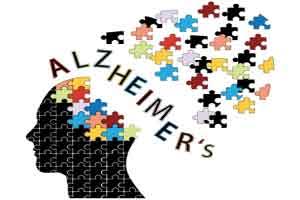- Home
- Editorial
- News
- Practice Guidelines
- Anesthesiology Guidelines
- Cancer Guidelines
- Cardiac Sciences Guidelines
- Critical Care Guidelines
- Dentistry Guidelines
- Dermatology Guidelines
- Diabetes and Endo Guidelines
- Diagnostics Guidelines
- ENT Guidelines
- Featured Practice Guidelines
- Gastroenterology Guidelines
- Geriatrics Guidelines
- Medicine Guidelines
- Nephrology Guidelines
- Neurosciences Guidelines
- Obs and Gynae Guidelines
- Ophthalmology Guidelines
- Orthopaedics Guidelines
- Paediatrics Guidelines
- Psychiatry Guidelines
- Pulmonology Guidelines
- Radiology Guidelines
- Surgery Guidelines
- Urology Guidelines
Alzheimer’s drug could help smokers kick the butt: Study

A class of medication used to improve cognitive impairments from Alzheimer’s disease has the potential to help smokers to permanently kick the butt, a new study says.
Despite several safe drug therapies available to help smokers quit, three-quarters report relapsing within six months of a quit attempt, the study pointed out.
In a study consisting of a rat trial and a human trial, the researchers studied the effects of two acetylcholinesterase inhibitors, or AChEIs, called galantamine and donepezil on overall nicotine intake.
The researchers found that pretreating the rodents with an AChEI decreased their nicotine consumption.
For both drugs “we were able to show a reduction in total nicotine self-administered,” said one of the researchers Rebecca Ashare, University of Pennsylvania in the US.
“At the doses shown to reduce nicotine self-administration, the AChEIs did not make our animals sick,” Schmidt noted.
The findings sparked the clinical trial, which has to date studied 33 smokers aged 18 to 60.
People who were interested in quitting smoking signed on for 23 days.
Clinical trial participants taking the AChEI, not the placebo, smoked 2.3 fewer cigarettes daily, a 12 percent decrease for seven straight day, and noted feeling less satisfied with the cigarettes they did smoke.
The findings are promising, particularly given that those who do not smoke during that first crucial week are 32 times more likely to quit smoking permanently, the researchers said.
In the brain, the neurotransmitter called acetylcholine is important to cognitive functions like learning and short-term memory.
When nicotine enters the body, it binds to the same receptors in the brain that acetylcholine binds to, resulting in smoking’s rewarding and reinforcement effects.
Acetylcholinesterase inhibitors increase acetylcholine levels in the brain and, in effect, substitute nicotine’s effects, the study explained.
The findings were detailed in the journal Translational Psychiatry.
Despite several safe drug therapies available to help smokers quit, three-quarters report relapsing within six months of a quit attempt, the study pointed out.
In a study consisting of a rat trial and a human trial, the researchers studied the effects of two acetylcholinesterase inhibitors, or AChEIs, called galantamine and donepezil on overall nicotine intake.
The researchers found that pretreating the rodents with an AChEI decreased their nicotine consumption.
For both drugs “we were able to show a reduction in total nicotine self-administered,” said one of the researchers Rebecca Ashare, University of Pennsylvania in the US.
“At the doses shown to reduce nicotine self-administration, the AChEIs did not make our animals sick,” Schmidt noted.
The findings sparked the clinical trial, which has to date studied 33 smokers aged 18 to 60.
People who were interested in quitting smoking signed on for 23 days.
Clinical trial participants taking the AChEI, not the placebo, smoked 2.3 fewer cigarettes daily, a 12 percent decrease for seven straight day, and noted feeling less satisfied with the cigarettes they did smoke.
The findings are promising, particularly given that those who do not smoke during that first crucial week are 32 times more likely to quit smoking permanently, the researchers said.
In the brain, the neurotransmitter called acetylcholine is important to cognitive functions like learning and short-term memory.
When nicotine enters the body, it binds to the same receptors in the brain that acetylcholine binds to, resulting in smoking’s rewarding and reinforcement effects.
Acetylcholinesterase inhibitors increase acetylcholine levels in the brain and, in effect, substitute nicotine’s effects, the study explained.
The findings were detailed in the journal Translational Psychiatry.
Next Story
NO DATA FOUND

Disclaimer: This site is primarily intended for healthcare professionals. Any content/information on this website does not replace the advice of medical and/or health professionals and should not be construed as medical/diagnostic advice/endorsement or prescription. Use of this site is subject to our terms of use, privacy policy, advertisement policy. © 2020 Minerva Medical Treatment Pvt Ltd